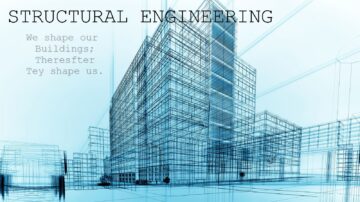Any student of structural engineering or new Structural Engineer has a desire to understand how structures are built and how they will react to environmental challenges like wind, earthquakes, floods and deterioration. But knowing your trade is not everything – here are six things needed for designing a successful engineering career.
1.Core knowledge in key academics
Like physics, mathematics and cognitive science is a must. Take time to understand subjects such as calculus, statistics, and drafting. If you struggle, find a tutor, if it’s an option for you. For those younger and more eager students who have not yet started their career at university, but already know they want to be a structural engineer: let your teacher know of your career goals. Sharing this information will give them the ability to help you better understand numerical solutions, matrices and modeling in a way that makes you realize why these methods were created in the first place.
2.A strong, supportive network
For a strong, supportive network of like-minded professionals and students: Join a networking site where you can ask questions from your peers, faculty and industry professionals. You are not alone. There is a huge network of other students who are walking the same journey as you. You will also find many retired structural engineers who are willing to share their knowledge and recommendations. Good sites to consider include Tekla Campus Lounge, Quora, Reddit, ASCE, and engineering.com.
3.Software skills
Learning the right software can boost your understanding both in terms of industry and structural knowledge. Learning software different software helps you understand design intent and how structures come together. Use your free time to master the software solutions industry professionals rely on.
4.Look into mentoring or internship opportunities
Many universities offer mentoring programs and internship opportunities as part of your degree. These opportunities can lead to potential employment but this should not be your entire endgame: Do also discover what you like most about your career choice. Find a mentor or someone you can trust and learn from them, it might lead you down new avenues.
5.Involve with Seniors
In a competitive industry, you must be able to showcase your knowledge and skills. This is also a great way to set yourself apart from your peers. You can develop skills along with real projects are being done by seniors. Try to be with them during the project analysis & design.
6.Be Open
Do not commit to a specific discipline & software. One of the best pieces of advice we have heard is from an old article, The Best Advice Anyone Ever Gave Me as a Young Engineer, where Anthony Fasano writes about a piece of advice he received: “Do not to commit to a specific discipline too early in your career.” This allowed him to branch out and work on many types of projects, and it gave him the opportunity to explore and learn about many different types of structures. Specific software may be easy for you but other can be helpful for different needs, so you can practice other software (practice makes a software easy to handle) to get required benefits when it’s needed.

Leave a Reply
You must be logged in to post a comment.